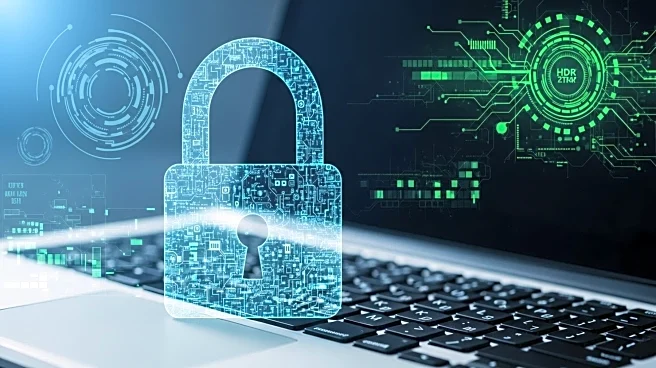What's Happening?
The Akira ransomware group has been successfully breaching SonicWall SSL VPN accounts, even those protected by multi-factor authentication (MFA). Researchers suspect that the attackers may be using previously stolen one-time password (OTP) seeds, although the exact method remains unconfirmed. The attacks are linked to an improper access control flaw, CVE-2024-40766, which was disclosed in September 2024. Despite patches being applied, threat actors continue to exploit stolen credentials from compromised devices. SonicWall has urged administrators to reset all SSL VPN credentials and ensure the latest firmware is installed. Cybersecurity firm Arctic Wolf reports that threat actors are bypassing MFA challenges, suggesting possible compromise of OTP seeds or alternative methods to generate valid tokens. The attacks have impacted devices running SonicOS 7.3.0, the recommended release to mitigate credential attacks.
Why It's Important?
The ability of ransomware groups to bypass MFA protections poses a significant threat to corporate network security. This development highlights vulnerabilities in current cybersecurity measures and the need for more robust solutions to protect sensitive data. The ongoing exploitation of SonicWall devices underscores the importance of timely patching and credential management. Organizations using SonicWall products may face increased risks of data breaches and ransomware attacks, potentially leading to financial losses and reputational damage. The situation calls for heightened awareness and proactive measures to secure network access points and prevent unauthorized access.
What's Next?
Organizations are advised to reset VPN credentials and apply the latest security updates to mitigate the risk of further breaches. SonicWall may continue to investigate the methods used by threat actors to bypass MFA protections and work on strengthening their security protocols. Cybersecurity firms may increase efforts to monitor and analyze ransomware activities, providing insights and recommendations to prevent similar incidents. The industry may see a push towards developing more advanced authentication methods and security solutions to address the vulnerabilities exposed by these attacks.
Beyond the Headlines
The breach of MFA-protected accounts raises questions about the reliability of current authentication methods and the need for innovation in cybersecurity. It also highlights the persistent threat of ransomware and the evolving tactics used by cybercriminals. Long-term, this could lead to shifts in how organizations approach cybersecurity, emphasizing the importance of comprehensive security strategies that include regular updates, employee training, and advanced threat detection systems.











